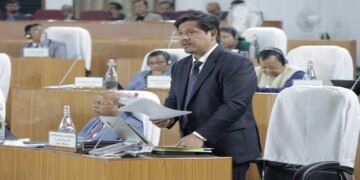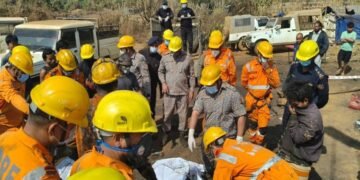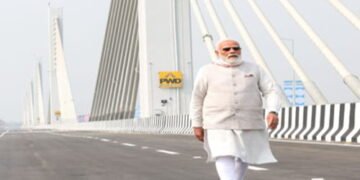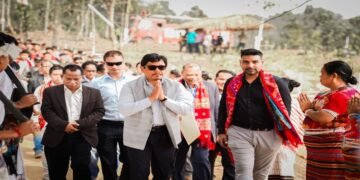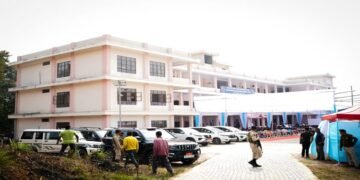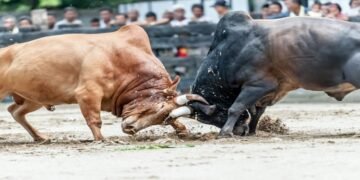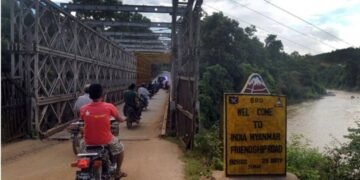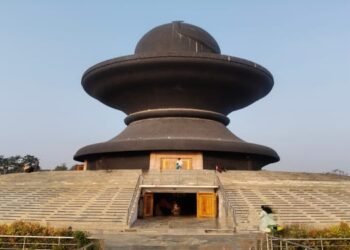By Chiranjib Halder
The story on the surface of Meghalaya’s impending polls is that reality is far removed from truth on the glossy surface of electoral politics. Chief Minister Conrad Sangma’s National People’s Party(NPP)’s affiliation with the BJP is the forerunner. It is also part of the umbrella coalition, the Northeast Democratic Alliance, tied like a string of pearls by Assam Chief Minister Himanta Biswa Sarma. Despite all the bonhomie Sangma shares with the BJP, he has serious differences with the BJP over various issues. The moot concern for the NPP being sturdy domination by a pan India regime in power, the BJP. Conrad Sangma’s inherent fears stem from the fact that as in many past instances, the BJP may eventually gobble up the NPP, albeit the wherewithal it possesses.
Trinamool Congress’s earlier attempts to expand beyond Bengal didn’t yield the desired results in Manipur, Assam, Tripura and Goa despite the party committing enough resources in assembly polls. But the party is upbeat about its prospects in Meghalaya. The National People’s Party (NPP)-led coalition government is facing anti-incumbency because of its failure to change the quality of lives of the people. Former chief minister Mukul Sangma heads the Meghalaya TMC and has a significant following across the state. Forming a government may be a pipe dream, as many observers feel. Still, there is a possibility the party might get a considerable vote share.
So, what does the crystal ball look like in the abode of clouds? First, there are no clear winners and losers. With zero seats, the Congress cuts a sorry figure, having lost all its legislators to poaching, defection or suspension. The Trinamool Congress may be having high aspirations under the astute leadership of Mukul Sangma but the state seems all geared up for a quadrangular contest in most assembly segments. With the four main contenders NPP, BJP, TMC, Congress all pitching their entries separately, the outcomes remain mired in uncertainty. The stakes are always high in multi-cornered contests and there could be post-poll alliances or horsetrading.
Except on one occasion, Meghalaya has always given fractured mandates at the hustings. Apart from the mainstream parties, there are tribal peer groups that work from outside the electoral battlefield. For the TMC to make a dent in Meghalaya may be an arduous task. Its identification as a regional party puts its grassroots organisation at a disadvantage. The other constraint, analysts feel, is the nature of politics in Meghalaya, where having a block of MLAs doesn’t necessarily mean the political party would be able to form a government. One shouldn’t forget that the NPP, which has the support and blessings of the BJP, is also ready for post-poll understandings and tie-ups.
Under the proposed Meghalaya Financial Inclusion for Women Empowerment scheme, Trinamool Congress has promised a monthly assistance of Rs 1,000 to female households. And to lure unemployed youth into its fold, the party has promised those between 21 and 40 years but sans livelihood a similar sum per month. This form of empowerment may not yield results in a state like Meghalaya where freebies are menial labour are often shunned and this is how the NPP and BJP are countering Mamata Banerjee’s agenda in the Khasi, Garo and Jaintia belt.
However, the TMC could win a few seats in Meghalaya akin to the AAP in the recent Gujarat hustings, but there is a flip side to it. The TMC’s participation and a downhill Congress would actually be a fillip for the BJP-NPP alliance in Meghalaya. A splitting of votes may invariably help the BJP-NPP coalition win big and thus have a larger share of the electoral pie on the lines of the BJP’s sweeping victory in Gujarat.
Kickstarting the campaign, NPP Chief and Chief Minister Conrad Sangma made a pertinent comment, ‘We have always been clear that we strive to provide a strong platform as well as a voice for the Northeast region in national politics.’ Meghalaya has been fractured in terms of its political mandate; the reason is partly ethnographic. Many locals feel there has been no political party to voice the opinions of the heterogenous tribes and communities. That is the void both NPP and Mamata Banerjee’s Trinamool Congress are trying to cater to.
The writer is a commentator on Politics and Society. He has contributed extensively to premier publications and has had substantive stints in broadcast media .


